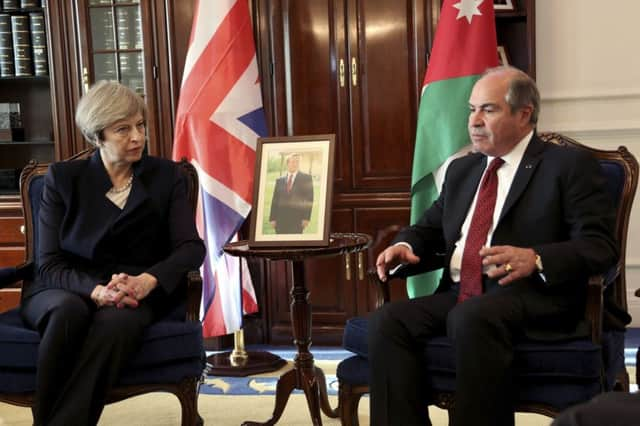Indyref2: Could battle over Nicola Sturgeon plans end up in court?


One remark, however, has set tongues wagging about the First Minister’s strategy since her plan to hold another referendum on Scottish independence was rejected.
The SNP leader promised after the Scottish Parliament voted to authorise her request for the powers to hold another plebiscite that she would update MSPs following the end of Holyrood’s Easter recess.
Advertisement
Hide AdAdvertisement
Hide AdThere has been much speculation of what form that might take, although Ms Sturgeon suddenly deciding Theresa May was right all along that it isn’t the time for a referendum can probably be safely ruled out.
Last night, in America, the First Minister said that the position of the UK Government isn’t sustainable, and noted that the notion that the referendum needed Theresa May’s permission ‘hadn’t been tested in court’.
Was this is a sign that Ms Sturgeon is willing to take her fight for another vote on Scotland’s constitutional future all the way to a courtroom? We look at how and why that might transpire.
A deliberate choice of words?
The Liberal Democrats have seized on the line by the First Minister in her speech, with leader Willie Rennie saying that Ms Sturgeon was seeking the support of courts because she had lost the support of the public.
Rennie added: “The First Minister has lost the plot over independence. She needs to recognise there is little demand for yet another referendum and that is she losing support very day she bangs on about it.”
However it might not be that the remark was Nicola Sturgeon threatening, even implicitly, that she was willing to take court action to ensure the referendum happens.
Perhaps a more theoretical interpretation of the First Minister’s comments was a general comment on the British ‘constitution’.
Unlike our constitutional fetishist cousins in America, the UK doesn’t have a singular piece of paper that gives us inalienable rights or political norms.
Advertisement
Hide AdAdvertisement
Hide AdRather than a threat that Ms Sturgeon could be eyeing up a court case, it could just be underlined her view that the UK Government’s position on the referendum is unsustainable and won’t stand up to any scrutiny.
Next steps
Maybe that is being too kind to the First Minister, and her next step really is to engage the Scottish Government’s lawyers to push for a legal outcome to the referendum impasse.
It wouldn’t be the first time that the Scottish Government had gone to court to try and help achieve a preferred outcome on a constitutional matter.
In an otherwise brutal ruling against Theresa May, the Supreme Court ruled in January of this year that the Scottish Parliament and other devolved administrations couldn’t wield a ‘veto’ on the decision to leave the EU.
The Lord Advocate argued then that the ‘Sewel Convention’ a ruling that Westminster legislation that has a lasting impact on devolved areas, the consent of the Scottish Parliament must be sought, applied to the Brexit decision.
This led Nicola Sturgeon to say that enshrining the Sewel Convention in law, as Westminster had after the first referendum, was virtually ‘worthless’ if it didn’t apply to issues like Brexit.
A legal challenge?
It could be that the First Minister isn’t anticipating having to launch a proactive legal challenge to Theresa May’s “now is not the time” approach.
Rather, it might be that Ms Sturgeon believes that she will have to deal with a reactive legal challenge from political opponents or even activists or business leaders should she press ahead with a referendum.
Advertisement
Hide AdAdvertisement
Hide AdWhile the matter of the union is specifically reserved to the UK Government, the SNP could say that, like Brexit, a referendum itself doesn’t immediately change previous legislation.
As we have found with acts like the Great Repeal Bill and the Article 50 letter, even after a referendum there is still political action required to enact the result.
Both referendums, indeed arguably all referendums, are advisory and therefore wouldn’t have an affect on current legislation at Westminster.
Theoretically, then, Sturgeon could be anticipating what might happen if her next step is the nuclear option of calling a ‘rogue’ second referendum.
That is fraught with danger, politically, if the unionist side boycotts the referendum, a Yes win in an advisory referendum is immediately questionable.
Ms Sturgeon perhaps reckons that the court action mention will put Westminster on notice that no option is off the table as she continues to pursue the vote.
If the UK’s unwritten constitution is put under duress due to the First Minister calling an advisory referendum, then a court fight in Scotland and even the Supreme Court could be inevitable.
Either way, the lack of a clear path forward for Nicola Sturgeon or Theresa May in their impasse over the referendum means we could be in for a long few months or even years of constitutional wrangling.
